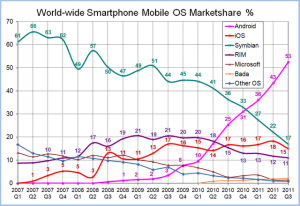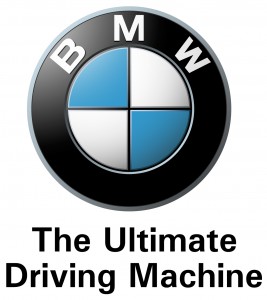 As Michael Porter suggested, company should focus on one strategy to develop a comparative advantage against its competitors and never try to combine two or more strategies or the company would fall into a dilemma that is “stuck in the middle”.
As Michael Porter suggested, company should focus on one strategy to develop a comparative advantage against its competitors and never try to combine two or more strategies or the company would fall into a dilemma that is “stuck in the middle”.
However, in my opinion, in such a volatile and fast-changing modern market condition, concentrating on a single direction can be disastrous because you never know when will an “accident” pop up and crash your business.
For example, Nokia corporation was the largest mobile phone producing company and occupied a market share of 32% by the end of 2010 and now they are only left with 3%. Their mobile phone business was just sold to Microsoft of a price of US$7.17 billion this September.
It is not hard to tell that the strategy that Nokia was using before the technology innovation was providing relatively cheap, good quality functional phones which can be concluded as a low-cost strategy. In 2008, Nokia had a market share of approximately 60% which seems that Porter’s theory is working so well and Nokia will never be tumbled out of the throne. At that time, the operating system of Nokia’s smart phone was the dominant one and Nokia had no pressure to improve its system but continued to offer cheaper keyboard phones and smart phones and beat its competitors by price. Nevertheless, this solely strategy doesn’t prove itself to be sustainable and result in the breakdown of Nokia empire.
It is not bad to keep the company’s cost down but implementing differentiation to the products will help a company to survive longer.
Source:
http://en.wikipedia.org/wiki/Nokia#2000_to_present



Recent Comments